Is Greta Thunberg right, and if so, what do we do about it?

I identify with Greta Thunberg. I’m also aspergic, and I understand why she’s so motivated. I talked with several people over the Christmas period who don’t like her, for various reasons – her voice; her team fly even though she doesn’t; her parents are manipulating her; she’s too angry; she once used a plastic bottle, and so on.
It made me angry, I have to admit. Those things are irrelevant, in the same way that the personalities of politicians are irrelevant – it’s their policies that are important. The focus on personality is ludicrous and it’s why democracy isn’t really working, in terms of delivering high-quality leaders.
So is Greta right? I’ve worked in the environment field for 30 years, and I know that she is. In fact, the people I talked to also agreed that she was right, but dismissed her for the reasons above. But we don’t have to like her, or her family. Maybe if we all made it our new year’s resolution to judge messages instead of messengers, we can move towards having more sensible conversations.
Greta isn’t doing what she’s doing for money or fame – she just can’t understand why what we’re doing to nature isn’t part of every conversation. And neither can I. It’s as if we’re on a ship that’s sinking, but no-one’s talking about how to launch and get in the lifeboats.
And the human ship is sinking. More and more people are realising this now – realising that peer-reviewed science is a more reliable source of information than pub bores, the oil industry or the corporate media. People have responded in a range of different ways to this – the most important of which is building lifeboats.

Some people are bailing out – working for organisations that are trying to cope with the situation: homelessness, environment, refugees, mental health etc. My wife is an NHS psychiatrist, for example – ‘fixing’ people, only to place them back into the system that damaged them. Bailing out needs to be done of course, but not without one eye on the lifeboats.
Some people are are plotting to overthrow the captain and his mates – mostly via the ballot box, and some with thoughts of revolution. But it doesn’t matter if you get the steering wheel. This ship is sinking.
Some people are still thinking ‘full steam ahead’ – we’ll work it out somehow. We always have. Technology will save us (regardless of the fact that technology caused the hole in the ship in the first place). But there’s no chance of this approach working. The more effort we put into it, the less we can put into building the lifeboats.
Some people are doing things like cleaning the decks, cooking the food, making the beds and not even thinking about it. Fine, but if this is you, you have to transfer that activity to the lifeboats or you’re going under.
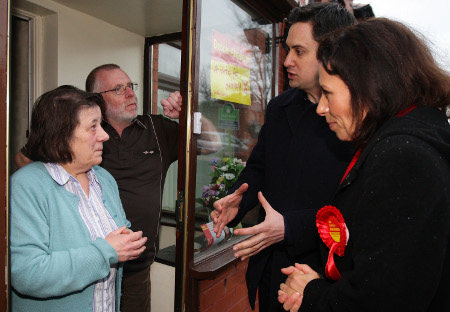
So now to the people building the lifeboats. What are those lifeboats?
They’re decentralised, community-embedded, non-extractive units of the new economy. [NB: centralised, corporate, extractive institutions suck money out of your community and into tax havens, where it’s used to maintain ‘full steam ahead’: examples are supermarkets, banks, petrol stations, chain restaurants and coffee shops, shopping malls, online corporate retailers etc.]
The lifeboats are:
- for energy – community energy and self-installations
- for housing – housing co-ops, community land trusts, cohousing and individual ownership
- for food – community-supported agriculture, smallholdings, allotments and gardens
- for exchange – mutual credit
- for IT – free & open source software
- for goods and services – co-operatives, sole traders, DIY and various forms of commoning
- and so on – for all aspects of the economy
This is how we sustain ourselves – in community. Lack of community is extremely damaging to our mental health. And it’s the economic as well as the social aspects that make community. You can’t have one without the other.
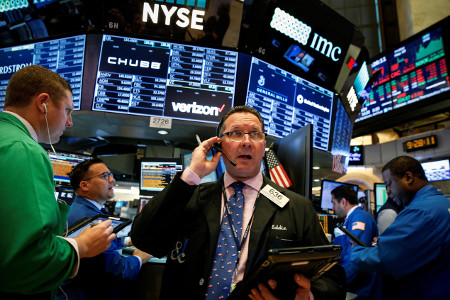
Sustainability is a crucial part of it, but it sort of comes with the package. The kind of people building the lifeboats are almost always concerned about nature as well. Hence community energy is always renewable; community-supported agriculture is almost always organic; co-ops don’t tend to operate in ecologically-damaging fields etc. Meanwhile, purchasing from Tesco or Unilever, because they sell organic food or install renewables on their properties, is not helping to build lifeboats – they will extract money from your community and concentrate it in the hands of those whose mission it is to maintain ‘full steam ahead’.
There are those who complain that building lifeboats will take too long. But there’s no other option, unless you’re happy for us to go to the bottom with the ship (and there are those who are – although I’m sure they’d be happy to get into a lifeboat given the opportunity).
Greta is right. Let’s all help those building the lifeboats in 2020. Happy new year.
 About the author
About the author
Dave Darby lived at Redfield community from 1996 to 2009. Working on development projects in Romania, he realised they saw Western countries as role models, so decided to try to bring about change in the UK instead. He founded Lowimpact.org in 2001, spent 3 years on the board of the Ecological Land Co-op and was a founder of NonCorporate.org. and the Open Credit Network.
The views expressed in our blog are those of the author and not necessarily lowimpact.org's
14 Comments
-
1Tracing Horizons January 1st, 2020
Absolutely, Dave, here’s to more building, creating, contributing. It may seem the long road, but the alternative one to hell is paved with short-term so-called ‘convenience’. As life is all about the journey, the road for life and living is where life and living is: you’ve only got to step on it. Life begets life – and all our small insignificant actions do have an effect and an influence. We’ve noticed that when we involve people – ask them to put things aside for us that they’d ordinarily throw away, turn down a material or an offer of spraying our garden, done something in a certain way, for example – although they may not share or understand our vision or our way of life, people like to help or feel they’re helping others; then they also do help in some way. Then our small insignificant approach to grow and produce our own food has a ripple effect outside our garden – and who knows where else? As cynical as one may be, I am optimistic that the world is not dominated by ill-intent; merely that so many of us have been blinded of our individual agency and distracted by so many bright shiny lights. But it is a very brittle facade, which is why so much is spent on trying to maintain it: a brief peek through a hole can be enough to break the illusion and weaken its influence on our behaviours. When life is the reward, it really is a no-brainer. It just needs to be shared and seen that there are alternatives, there are choices, and we do have agency. Thank you to yourself and all those involved in building, creating, contributing: wishing you continued peace, love and happiness through 2020 and beyond.
-
2sat kartar January 1st, 2020
Lets not forget the earths climate also has changed over the thousands of years… species are meant to evolve and become extinct.Its a natural way of life….Its a flow….however, We as humans are hastening a “mini ice age” acc to asc masters….our direct behavior isnt causing climate change but hastening the changes which will happen! however we need to live more sustainably and stop consuming so much….dependence upon fossil fuels…i believe theres much invested in these re big corporations and we cant change over just “like that”….lot of markets dependant which would affect everything…not that easy. however im sure it will come about. I admire Greta Thunberg for speaking out but its nothing new here and i dont like how the media is building her up to be a savior…typical…The earth, Gaia has an inate intelligence which would and will step in if we fail to change our ways…maybe she is already…..far too many of us here…population needs to be lot less in many respects
-
3sat kartar January 1st, 2020
incidently PLASTIC is the real threat…it could wipe out mankind…which probably for the earth wouldne neccesarily be a bad thing!
-
4Theresa January 1st, 2020
A great motivating blog for the start of the new year. I’ve been following your site/blog for many years, can’t remember how many now, but it’s one of the few I never feel like unsubscribing from. Thanks for the continuity in good sense, please don’t stop.
Let’s hope 2020 has a tsunami of people finally waking up to what’s happening and tearing themselves from the grasp of the media, banality and opening their eyes to political and corporate lies and greed.
Best wishes for the coming year!
-
5Dave Darby January 1st, 2020
Thank you Theresa. I guess our preoccupation is trying to work out how to get people to switch to new economy institutions. Inertia is strong and people are busy.
-
6Ian January 1st, 2020
thanks Dave, I have been trying to blog as well, trying to keep an overview, not get bogged down in a specific like plastic or flying. I’m always working on being useful and relevant and with a healthy distance from ‘the grasp of the media, banality’. I’m finding it hard to get my thoughts to a sharing quality, so good on you for getting this out there. Funny about Greta and people dismissing her content and noticing her personality. I recall 20 years ago how people dismissed all the good stuff that D Suzuki was saying and they focussed on how GOOD was his personality! ‘plus sa change’. Similar pattern, slightly different logic, but the denial and addiction continues.
-
7Ian January 1st, 2020
Holmgren’s 4 future secnarios include a lifeboat one. At the moment I see all 4 scenarios unfolding interwowen. https://www.futurescenarios.org/
-
8CC January 6th, 2020
As I don’t do corporate mass media, I thought I’d better check just what Greta Thunberg is all about – apparently she thinks that carbon emissions are the reason why our living planet is slowly dying. (Please correct me if I am wrong about that.)
Carbon emissions have very little to do with the ecological crisis. If they were reduced to zero tomorrow, the Earth would still be dying – wanton chopping down of trees: monoculture: biotech poisoning our fields, then running of into our rivers: industrial emissions into rivers: micro plastics in our oceans (and on into the food chain);radio-activity in the oceans: industrial air pollution, chemtrails: unhealthy wi-fi frequencies (when healthy frequencies are available ): destruction of wetlands: bee die-off: fracking. The very organs and tissues of the living planet are being destroyed, and all in the name of economic growth. Regenerate these organs and the Earth would be in a position to regulate its own eco-system – if there is excess carbon, then the planet would deal with it. The planet is just too sick – but do we hear about the real causes of this destruction?
I know that Lowimpact.org works flat out to promote regeneration, localisation, monetary change and all the other really positive stuff to help us become aware of the old paradigm of separation – from each other and from our planet – but I’m a bit shocked that you are buying the carbon myth. Greta is surely a corporate media puppet. If we are blinded by the carbon distraction, then we might not notice that its business as usual. The Emperor’s New Winter Collection is looking good.
-
9Dave Darby January 6th, 2020
CC: We don’t censor posts unless they’re spam, but neither do we get into debates about peer-reviewed science. It’s the best we can do. In fact it’s how we also know about the extent and effect of industrial air pollution, or that the earth isn’t flat, or how solar panels work, etc., ad nauseam.
-
10CC January 7th, 2020
It’s just an alternative point of view Dave.
-
11Stefan Wolf January 8th, 2020
Thank you very much for this Post Dave, I appreciate it. And thanks for all the good you are doing to bring about positive change! Wish you and all who read this great success in creating lifeboats and oases of life wherever we are on our benevolent shared planet.
-
12homeminderuk January 9th, 2020
Thanks for the post, Dave, and for all your hardwork and committment in 2019; warmest wishes for a successful 2010. Except for the few with a lot of their own twist on psuedo scientific knowledge that they just have to shove down our throats, I find the majority of contributors helpful, holistically kind to all their fellow humans straining towards the same goal, and genuinely the sort of human beings that will make the end game a lot more tolerable. Happy days!
-
13mrmhf January 17th, 2020
Very insightful piece. In the past 18 months we’ve tried to become as sustainable and eco friendly as possible by installing solar and air source pump. Our house is now operating at zero carbon because our electricity provider gets all its energy from renewable energy. My fear is that we’ve hit our tipping point as a planet, and reversing what man has done is near-impossible task given that the the world continues produce CO2 at silly levels and pollution doesn’t show any signs of slowing down, In addition to this, the population is growing, putting even more pressure on food production systems and man’s addiction to meat is further contributing to this planet’s demise. The sustainability of meat is simply not possible: https://myhomefarm.co.uk/sustainability-of-eating-meat – it takes 7,000 liters of water and 3kg of feed to produce a 500g steak. Intensively farmed chickens are producing hundreds of thousands of ammonia that’s added to the atmosphere.
Something has to change quickly, but despite all the awareness and talk, progress is insignificant. I feel the outlook is bleak, and this makes me anxious.
-
14C C February 7th, 2020
Dear mrmhf – We could try regeneration – of the soil, the air, the water, the forests, the wetlands. That would sequester enormous amounts of carbon, from the atmosphere back to where it is valuable – as a nutrient. We could stop believing that greenhouse gases are at the heart of our climate crisis – regeneration of the Earth’s eco systems would have to be at local level though. We’d have to take it upon ourselves to take this route. Our governments, do not serve us, surely we can see this by now, We must do it ourselves. Not only could we heal the planet, we would, at the same time, be re-building our communities.
Yes it would take a lot of re-educating after all the propaganda we have been spoon-fed. We’d have to find ways to help people understand that we don’t need meat, we don’t need supermarkets, we don’t need monoculture or chemicals, we don’t need insane trade zig-zagging the globe. What we DO need is our local communities, supporting each other rather than the corporate way, which has never proved beneficial to any but the 1%. Could we do this? If not, the alternative would be, as you yourself say, a bleak outlook and much anxiety. So … let’s try to take something positive from our EU departure and view it as an opportunity to change. Yes, it will take time and the transition period will be tough, but look what we’d gain – a healthy Earth, with a happier population. The current state of affairs in the UK is really an amazing opportunity to break away from the dominant, corporate, business-as-usual, never-mind-the-planet attitude. Let’s go local … and regenerate.
There’s a ton of help out there. With a bit of effort and research, we could find many who would help us. Let us at least try it.
Alternatively … well … you already know the answer to that one.




 Can elections really change anything?
Can elections really change anything?
 Become one of the first movers in a new, collaborative economy: Open Credit Network Alpha launch
Become one of the first movers in a new, collaborative economy: Open Credit Network Alpha launch
 What I’ve discovered about the money system and how the world is run, since working with the Open Credit Network
What I’ve discovered about the money system and how the world is run, since working with the Open Credit Network
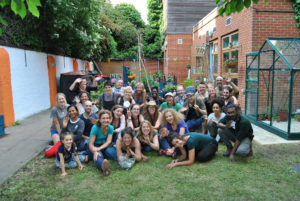 11 days left to support a collaborative new online ethical lifestyle toolkit
11 days left to support a collaborative new online ethical lifestyle toolkit
 Disillusioned with the parliamentary route to a better society? Here’s an alternative.
Disillusioned with the parliamentary route to a better society? Here’s an alternative.
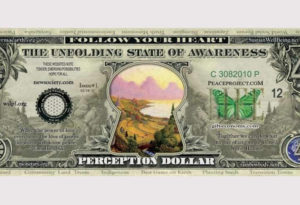 Starting from scratch: Matthew Slater, barefoot economist and Credit Commons co-designer, Part 1
Starting from scratch: Matthew Slater, barefoot economist and Credit Commons co-designer, Part 1
 Can we avoid ecological collapse? Prof. Julia Steinberger
Can we avoid ecological collapse? Prof. Julia Steinberger
 Co-operatives
Co-operatives
 Commoning
Commoning
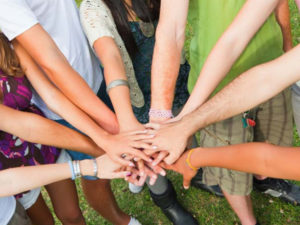 Community
Community
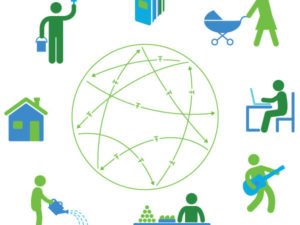 Mutual credit
Mutual credit
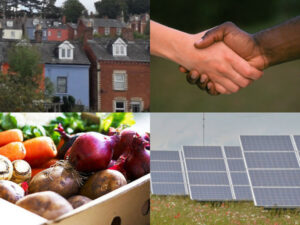 Commons economy
Commons economy
 Philosophy
Philosophy
 Small is beautiful
Small is beautiful
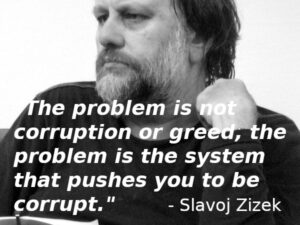 System change
System change
 The 'nature problem'
The 'nature problem'


